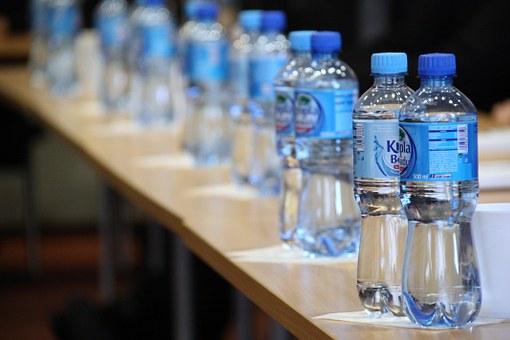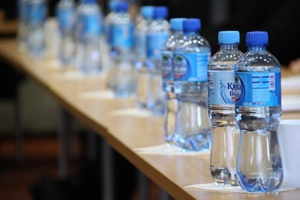This year, Britain has plans for introducing “a deposit return scheme” on the “single-use drink containers”, this way pushing towards increased “recycling rates”, whereby slashing waste material that are being disposed off in sea as well as on the land.
The “deposit return schemes” of the like are operational in “Denmark, Sweden and Germany”, as consumers have to pay for a deposit amount while purchasing a drink and once they return the container, they are given their money back.
Consumers at Britain use up around “13 billion plastic drink bottles” on an annual basis, while over “three billion” either get “incinerated, sent to a landfill” or are “left to pollute streets, the countryside and marine environment”, reported the government. According to a statement from the Environment Minister, Michael Gove:
“We can be in no doubt that plastic is wreaking havoc on our marine environment – killing dolphins, choking turtles and degrading our most precious habitats”.
“It is absolutely vital we act now to tackle this threat and curb the millions of plastic bottles a day that go unrecycled”.
Furthermore, he also added that the above mentioned scheme when implemented would make England subject to “consultations later this year”, which will delve into the “details” of the scheme’s working besides taking up “other measures” for increasing “recycling rates”.
As an alternative to the scheme of deposit return, the government is also thinking of “cash rewards” on “returning drink containers”. In the latter case, “reverse vending machines” are used, wherein either glass or plastic bottles are inserted to receive money in return from the machine. While Reuters reports that:
“Britain has managed to slash the use of plastic bags since 2015 by charging 5 pence for each bag”.
References:
reuters.com
The “deposit return schemes” of the like are operational in “Denmark, Sweden and Germany”, as consumers have to pay for a deposit amount while purchasing a drink and once they return the container, they are given their money back.
Consumers at Britain use up around “13 billion plastic drink bottles” on an annual basis, while over “three billion” either get “incinerated, sent to a landfill” or are “left to pollute streets, the countryside and marine environment”, reported the government. According to a statement from the Environment Minister, Michael Gove:
“We can be in no doubt that plastic is wreaking havoc on our marine environment – killing dolphins, choking turtles and degrading our most precious habitats”.
“It is absolutely vital we act now to tackle this threat and curb the millions of plastic bottles a day that go unrecycled”.
Furthermore, he also added that the above mentioned scheme when implemented would make England subject to “consultations later this year”, which will delve into the “details” of the scheme’s working besides taking up “other measures” for increasing “recycling rates”.
As an alternative to the scheme of deposit return, the government is also thinking of “cash rewards” on “returning drink containers”. In the latter case, “reverse vending machines” are used, wherein either glass or plastic bottles are inserted to receive money in return from the machine. While Reuters reports that:
“Britain has managed to slash the use of plastic bags since 2015 by charging 5 pence for each bag”.
References:
reuters.com






